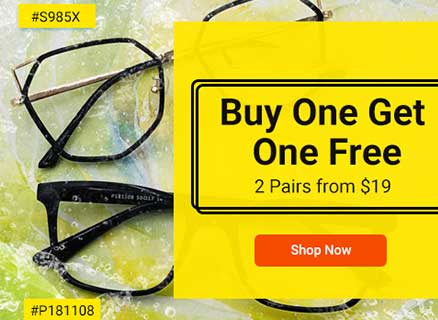Latest Vision Articles
- 1. The basic knowledge about optician
-
Optician, also called the eye care specialist, is a licensed eye care practitioner who helps people with the vision problems, such as the low vision aids and ophthalmic prosthetics.
- 2. Visual snow needs more study
-
Many people in either developed or developing countries may have experienced the phenomenon while they are watching TV that there seems nothing playing. This situation is not necessarily caused by a broken TV. It may be resulted from blurry vision caused by a special condition named visual snow. In the world, only a very small fraction of individuals suffer from this visual problem. There are researches publishing that there are approximately 4,000 folks per month in the world who search for the phrase of visual snow or its variations.
- 3. What eyesight disorders can vision lenses correct?
-
When we are talking about lenses, we mostly refer to the camera lenses and vision lenses, these are all optical lenses. Here let’s talk about vision lenses.
- 4. Use NAC eye drops to treat cataracts
-
Cataracts involve damage to the eye’s natural lens, which is comprised of mostly water and protein. Individuals of old ages are very likely to develop a “cloud” over an area of the eye, because of some of the proteins clustering together.
- 5. Different low vision aids
-
Wide selections of low vision aids are available for low vision patients. People may suffer from low vision caused by macular degeneration or albinism. Low vision aids are helpful for them to improve the quality of daily lives. Once a low vision patient sees a specialist, he will probably be asked about the situations that he finds difficult because of vision impairment. So the choice of low vision aids relies on your purpose and the advantages and limitations of the devices.
- 6. Zeaxanthin protecting the eyes
-
Zeaxanthin is a powerful antioxidant that plays a similar role as lutein. Many people many have heard of lutein, while zeaxanthin is relatively less known. In fact, people need both of these two nutrients for eye health. Both of lutein and zeaxanthin are naturally absent in the retina and they are essential to maintain good eyesight.
- 7. Lutein amount for continued eye health
-
Lutein is commonly thought to be beneficial to eye health. And this nutrient is available from either daily diet or supplements. Many people know that lutein is closely linked with age related eye diseases such as macular degeneration. And they do want to absorb enough amount of this nutrient. But the problem is how much lutein is needed every day.
- 8. Exercise eye muscles in different ways
-
Eyeball movements such as up-down, right-left are believed to benefit eye health. Seen in eastern dancers perform, these movements can help the eye muscles keep healthy and thus eyeballs in place. Eye muscles are primarily engaged in positioning the eyeball and keeping it in a right place. This is the reason behind the prevalence of eye exercises among young students. Some children are even required to maintain some forms of eye exercises from an early age.
- 9. How to preserve bursts of clear vision
-
Burst of clear vision is probably a condition that can be seen in many people. This condition simply means that a person may experience extraordinarily clear vision during a short time. But the phenomenon will disappear quite soon. This kind of bursts of clear vision sometimes occurs more frequently in people who have just started wearing correction eyeglasses. But it is not limited to this group that every ordinary individual may have a similar experience.
- 10. Choose supplements containing natural ingredients
-
Researchers have suggested various carotenoids for eye health, including lutein, zeaxanthin, beta-carotene, lycopene and so on. Although there is still controversy about the effectiveness of these nutrients, most studies show positive answers. Although there are many foods that contain certain of these components, it is difficult to get enough through diet. As a result, hundreds of supplement products come into the market with the purpose of bridging this gap.







